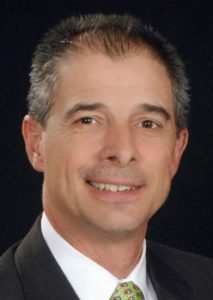I’m not a bumper sticker guy, but mid-week after one particular Sunday sermon someone showed up in my office with a gift in hand, patterned on that sermon title: “Eschew Obfuscation.” You know: Avoid making things difficult to understand.
I confessed in that sermon that I had adopted this (non-original) irony as my motto for ministry. As the world continues to get more complicated, I’m doubling down. I wrecked that truck, so I’ve lost the bumper sticker, but the theology, and my conviction behind it, holds.

Russ Dean
Eschew obfuscation: Ministry needs to be understood. Obviously. Preaching, an essential part of the task as we have formulated it, needs to communicate an intelligible message, or the preacher is wasting everyone’s time, including her or his own. I committed a long time ago to do my best not to waste people’s time when they sit in our sanctuary. That commitment remains, impacting sermon planning and preparation and delivery. I want any listener, who’s really been listening, to walk away with something, an insight, a comfort, a challenge. I get it. If you’re going to give me your time, I want you to get it, too.
The problem is that my world got un-simplified as a freshman at Furman University. Conservative friends warned me not to take philosophy (“They’ll try to take away your faith!”), but I signed up anyway, and by midway through the semester I was teetering. Afraid. Confused. Angry. I knew I had opened a door I never could close. It had only taken about six weeks, and all the simple answers were gone.
So when Will Campbell, the old Tennessee farm boy turned prophet and preacher, showed up for one of our weekly chapel services and proclaimed, “Once you get educated, nothing is ever simple again,” I knew he was right.
Yes, the message needs to be intelligible … but … none of the questions is simple, so… Eschew obfuscation.
Quantum science says that at a sub-sub-sub-atomic level, it’s impossible to know the state of things without observing the thing. It might be a particle, it might be a wave, and the only way to know is to observe it. And by observing it, you actually change it. In some way of quantum weirdness, the act of observing actually determines its state.
A similar principle is at work in the life-size world where we make our home. It’s a very big world. We live with some large ideas. We’ve created some huge problems — and boiling any of that life-sized bigness down to bumper-sticker-sized understanding actually changes the thing in the process.
“You cannot put an appropriate biblical hermeneutic on a bumper sticker without changing what the Bible is supposed to be.”
You cannot put an appropriate biblical hermeneutic on a bumper sticker without changing what the Bible is supposed to be, without losing the richness of complex literature and nuanced theology in the process. “God said it. I believe it. That settles it.”? Not quite.
Abortion? Reducing the emotional and moral and economic and physical and psychological and religious and political and ethical and spiritual complexity of real life to a hyphenated slogan. “Pro-life”? Not hardly.
Slogans about guns never tell the whole story. And “tax and spend”… and “Freedom is never free”… and “I’m blessed”… and all those angry diatribes about vaccines and mandates … On a bumper sticker? There’s not a chance to convey the whole truth on a bumper sticker without changing the real complexity of the problem in the process.
What’s worse is that the simplistic messages often win the day in our attention-span-deficit-culture. Conservatives are masters at this, boiling down the largest issues to bumper-sticker-size “solutions,” and then beating anyone who dares to consider the complexity and nuance and difficulty of the issue over the head, as if they are the problem. This process of downsizing (dumb-sizing?) an issue almost completely changes the real point in the process. But if you win at the ballot box, well, who’s going to argue with that? Right?
“This process of downsizing (dumb-sizing?) an issue almost completely changes the real point in the process.”
Eschew obfuscation.
As difficult as it will be, we must change this culture of oversimplifying our very complex world. Reducing complexities to trite truisms only misses the point — ironically, compounding the complexity in the process. Arrogant certitude, small answers to big problems, will only make it even more difficult to find real solutions the farther we go down this road.
Whatever opportunities you have, then, to speak and write and teach — and to engage your family and your friends — please use them. The problems we’ve created are not simple. The solutions will not be easy, either, but the future may depend on us deepening the conversation.
Eschew obfuscation. Amen.
Russ Dean serves as co-pastor of Park Road Baptist Church in Charlotte, N.C. He holds degrees from Furman University, Southern Baptist Theological Seminary and Beeson Divinity School. He and his wife, Amy, have been co-pastors of Park Road since 2000. They are parents of two sons. Russ is active in social justice ministries and interfaith dialogue. He is author of the new book Finding A New Way.
Related articles:
Paradoxical reflections on a significant birthday | Opinion by Marv Knox
In an unending pandemic, grief isn’t doubt, it’s true faith | Opinion by Eric Minton
It wasn’t cute puppies that got Jesus killed | Opinion by Russ Dean


